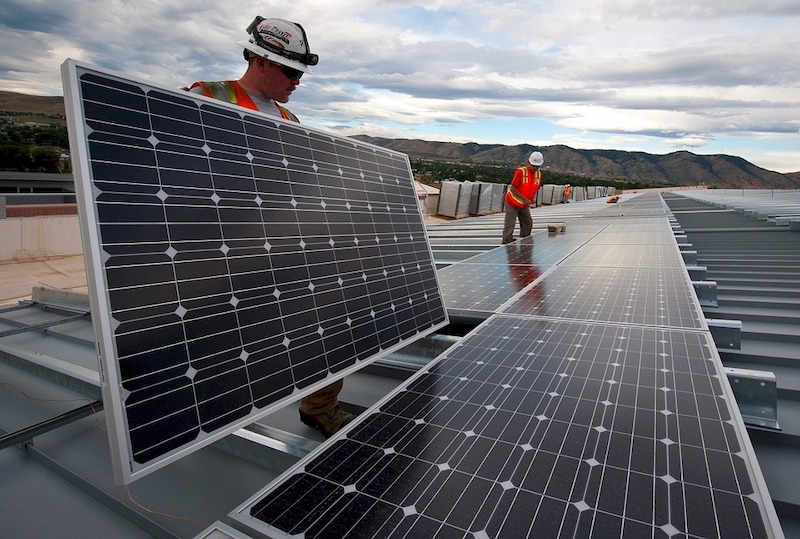Many types of zero energy (ZE) buildings can be constructed with no added upfront cost, and some commercial buildings can see return on investment in as little as one year, according to a report by U.S. Green Building Council Massachusetts Chapter.
The report, “Zero Energy Buildings in MA: Saving Money from the Start,” assesses zero energy upfront building costs, model performance, and life-cycle costs in Massachusetts. Stakeholders and decision-makers frequently cite high costs as the primary barrier to ZE buildings, but the report contradicts that perception.
Researchers found that ZE buildings are being constructed utilizing readily available products, practices, technologies, and energy efficiency rebates. “We must address buildings with urgency, as they are the biggest contributors to carbon emissions in the City of Boston and demystify the notion that a future of resilient and sustainable buildings is unattainable,” said Boston City Councilor Matt O’Malley, Chairman of the Environment, Sustainability and Parks Committee, in a news release.
The report says that building energy demand can be reduced 44% to 54% across all building types with technology that’s readily available today. Existing office buildings retrofitted to zero energy, with renewables, can produce a return on investment in as little as five to six years.
Related Stories
| Mar 22, 2012
Bill would reintroduce “opt-out” provision in lead paint law
The Lead Exposure Reduction Amendments Act of 2012 (S2148) would restore the "Opt-Out" provision removed from the Environmental Protection Agency's Lead Renovate, Repair and Painting (LRRP) rule in April 2010.
| Mar 15, 2012
New Florida building code establishes flood and storm surge provisions
The new 2010 code establishes minimum design and construction requirements to protect buildings from wind, rain, floods, and storm surges.
| Mar 15, 2012
Illinois city rejects international code due to home sprinkler requirement
Macomb, Illinois aldermen voted to recommend that the city not adopt 2012 international building and residential code standards requiring the installation of overhead sprinkler systems in newly constructed one-family and two-family homes.
| Mar 15, 2012
Tenant advocates propose licensing landlords in New York City
With thousands of New York City rental units posing potential dangers to tenants, city advocates are proposing measures to make landlords improve building safety.
| Mar 15, 2012
Construction industry a big winner in federal small disadvantaged business procurement
Last year, only 5% of federal contract dollars went to small disadvantaged businesses. Construction and facilities support firms were the biggest beneficiaries.
| Mar 15, 2012
ANSI approves new fall protection standards
The American National Standards Institute (ANSI) has approved two American Society of Safety Engineers' (ASSE) standards addressing fall protection.
| Mar 8, 2012
Engineering innovation provides new option for meeting seismic codes in skyscrapers
Two University of Toronto engineers have developed “viscoelastic-energy-dissipating dampers” to replace many of the heavy concrete beams used in tall structures.
| Mar 8, 2012
CSI webinar on building code compliance March 22
A March 22 webinar will provide an overview of a 28-step process during the design of a building to ensure compliance with building codes.















